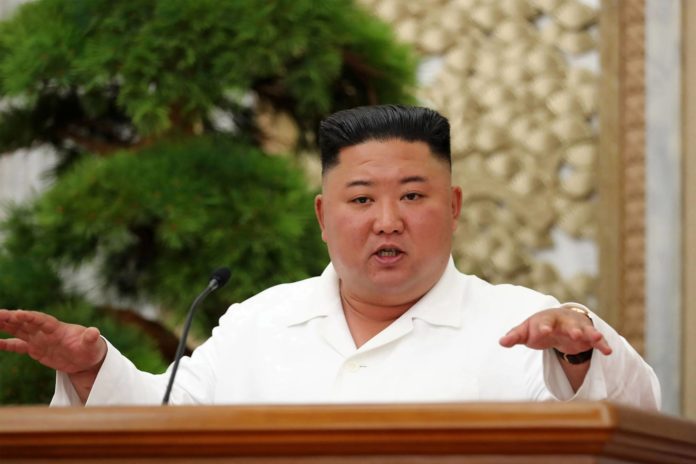This article was originally published on Chosun Ilbo and translated by OKN Correspondent.
Recently, a succession of testimonies has come out that the food shortage in North Korea is severe. It is said that people starved to death in some areas as the North Korean-Chinese border has closed again due to the spread of “Omicron,” which overlapped with chronic economic difficulties. The Rodong Sinmun, the official newspaper of the North Korean Workers’ Party, called it “a state of emergency for the Republic.” There are also concerns that the “Arduous March” in the late 1990s, where large-scale starvation occurred, could be repeated if North Korea also suffers from natural disasters such as typhoons. There is a possibility that it will lead to the agitation of the Kim Jong-un regime.
In January this year, North Korea resumed train operations with China, lifting the two-year-long border closure due to Covid-19 for the 110th anniversary of Kim Il-sung’s birthday in April. The North Korean jangmadang (meaning market) came to life after a long time as food and supplies from China came in. However, the food crisis quickly worsened after Kim Jong-un closed the border again, admitting the spread of “Omicron” in May. North Korea has made up for the food shortage by releasing rice stockpiles for the past two years. However, the amount of food available in the market has significantly decreased as the rice stockpiles have run out and North Korea closed the border.
According to the Daily NK, which monitors food prices in North Korea, the cost of rice jumped to 6,000 Won per kilogram in July from around 5,000 Won in May. An internal source said, “the residents are starving because they cannot get food even though they have money.” Recently, North Korea has asked China to resume train operations; however, it is said that China, this time, is hesitant because of the spread of Covid-19 in North Korea.
Seasonal factors also overlapped. Although baby potatoes are available, there is little food to produce before the harvest at the end of September. Kwon Tae-jin, a North Korean agriculture expert and former president of GS&J, said, “although the (farming) area for wheat and barley has expanded, production is estimated to have decreased compared to the past due to the monsoon this year.” A source in North Korea said, “currently, residents mix up the food, such as baby potatoes and wild greens, for their meals. It is said that people starved to death in some regions, including Kwangwon Province, Kaesong, and Yanggang Province.”
In Hyesan, a border region, a family reportedly died after not receiving food for a week while being quarantined due to Covid-19. Another source said, “in the Pyongsong region, a family reportedly sold their daughter to a wealthy family to buy food.”
More than one million people died of starvation during the “Arduous March” in the 1990s as people only believed in rations provided by the state. Since the 2000s, there has not been a severe food shortage since most residents have obtained food in the market. Only special classes and areas receive rations, such as soldiers and those in Pyongyang. However, experts analyze that the recent food shortage is severe since the problem is in the market, not in the distribution system.
Cho Choong-hee, the director of Good Farmers and a former agricultural and livestock official in North Korea, said, “the market has been out of supplies due to the prolonged suspension of imports. In the case of cooking oil, the price has jumped to 32,000 Won (28 USD) from 8,000 Won (7 USD) before Covid-19. Still, the oil is out of stock.” A source in the border area said, “even the amount of food and supplies that flowed in through smugglings between North Korea and China has greatly decreased, making it difficult to operate the market.”
When the market stops, the survival of ordinary residents is threatened. A head of a humanitarian group for North Korea said, “those in the United States and who do business in North Korea say the same thing. The Arduous March has come again. Even North Korean scholars say that they came to experience the Arduous March twice in their life.”
North Korea’s food shortage is expected to worsen as China strengthens preventive measures at its border ahead of the year-end Communist Party Congress. In its recent report, the UN’s Food and Agriculture Organization (FAO) included North Korea among 44 countries in urgent need of food aid.
The North Korean authorities are also taking the current situation seriously. North Korea’s Rodong Sinmun reported this month that “there has never been an emergency as extreme as today in the Republic’s history.” Yoo Seong-ok, former Institute for National Security Strategy director, said, “North Korea is strengthening surveillance of party officials and residents to prevent turmoil against the state system. Increasing the intensity of Kim Jong-un’s idolization is evidence that North Korea is internally unstable due to food shortages.”


